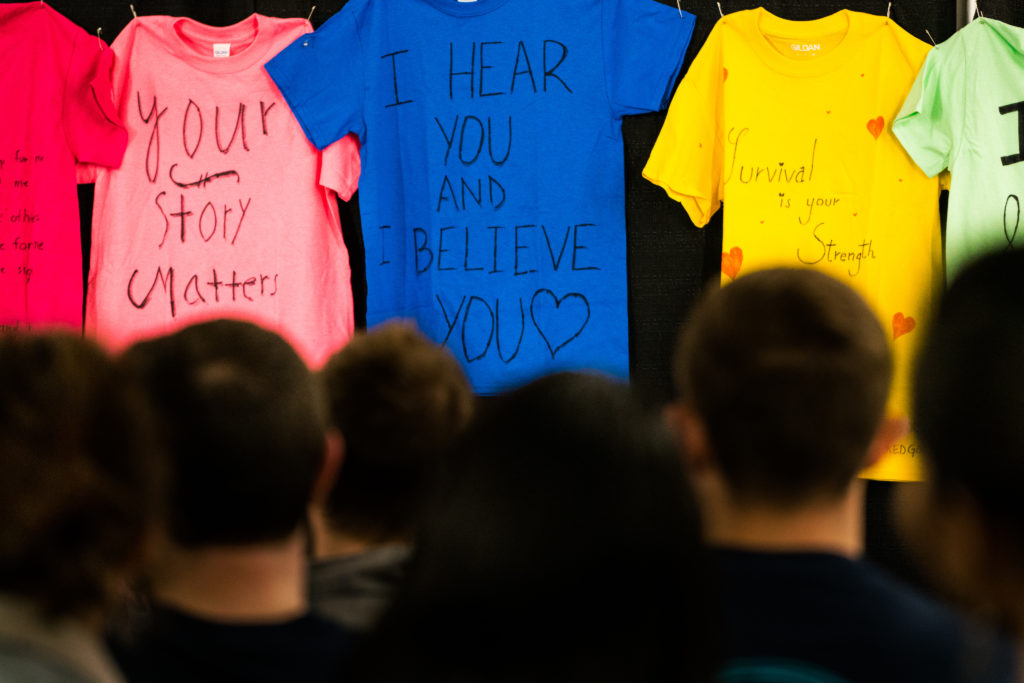Take Back the Night calls attention to sexual violence
April 12, 2018
Survivors of sexual assault shared stories of courage and resilience March 29 at Take Back the Night, the culminating event of this year’s Sexual Assault Awareness Week.
Sponsored by Delta Tau Delta, Omega Phi Beta, Sigma Delta Tau, NUSPACE and the Office of Prevention and Education at Northeastern, the event featured speeches and musical performances as part of an international campaign to inspire solidarity and call attention to a culture that normalizes sexual violence.
While the speakers had experienced different forms of abuse, each touched upon common themes of strength, healing and silence-breaking. Keynote presenter Bernadine Desanges addressed the sense of guilt that keeps many survivors quiet and emboldened them to come forward with their stories.
“Silence the voice that says it’s your fault and you are unworthy,” said Desanges, a program manager at the John D. O’Bryant African-American Institute. “Know and believe that you are in fact worthy of all that is good in this world, and believe that you have no reason to be embarrassed by your story.”
After sharing her own story of survival, student speaker Sasha Shenk discussed her realization that she was not alone in experiencing sexual abuse and called attention to a problematic culture that minimizes these incidents.
“I found in college that a number of my friends had equally traumatic experiences,” said Shenk, a second-year health sciences major, during her talk.“But it’s almost entirely written off as a bad drunken night or a messed up situation to the point that it’s completely normalized.”
Shenk, who founded the campus assault prevention group NUSPACE, expressed frustration at a society that fails to identify and properly respond to sexual aggression.
“How many times do we have to hear ‘grabbing someone by the pussy’ written off as ‘locker room talk’ before we can take a look at the larger culture that we’re all a part of that doesn’t call out pervasive behavior at any level?” Shenk asked. “We need to start calling messed-up, bad nights what they are, which is sexual violence.”
Maggie King, a third-year political science and international affairs combined major, said she valued the opportunity to hear from individuals who overcame traumatic experiences.
“I find this space to be very powerful in the way that it opens a dialogue and allows survivors to share their stories in a way that they know that people listening are there to build them up and support them,” King said. “That’s a really beautiful thing.”
Like Shenk, King said she knows many people who have been affected by sexual assault and believes events like Take Back the Night were a starting point for progress on this systemic issue.
“I know no woman without a story and no person who hasn’t been affected by this,” she said. “Sometimes it can be upsetting and triggering to hear them, but it’s important that we start this dialogue and continue these difficult conversations.”







